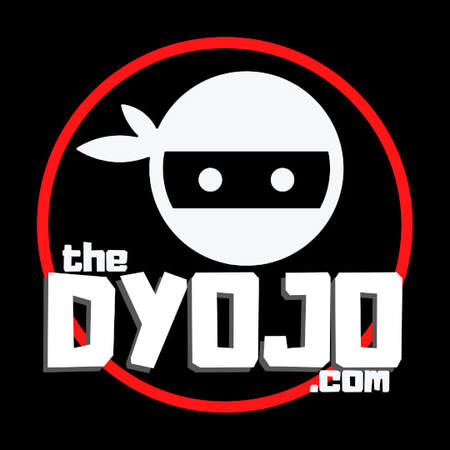|
When was the last time you reviewed and updated your job descriptions?
In this short clip from Episode 112 of The DYOJO Podcast, we encourage business owners and managers to review and rethink the standard job description. Achieve better outcomes in recruitment, hiring, development, and employee retention by updating these processes to reflect your unique culture. NEW BOOK - Resources for Young Pros As a business owner or manager, are you stressed out, struggling to find ways to engage with young professionals in the workforce? P2T, the new book by Jon Isaacson will help businesses create a competitive advantage. My new book will help you better engage young professionals and articulate a pathway to success for new hires. P2T is a win-win for employers and employees. BUY NOW on Amazon Learn more - thedyojo.com/book5 Transcript Really rethinking the job description? I think that fork forces us to rethink what do we actually want from this position. And I don't really care. I don't care that company A calls this a project manager and this is what the script is. Or they call this an estimator. That's a lead tech, what matters in your company? For this need, this is what we have a need for. What does that look like in our company? Let's get that on paper, you've got to show them a path to success. Let's think through as we're bringing this person in these will be your pathways to success. This is what success will look like first 30 days, 60 days, 90 days, and then we'll review it after you know, the first year. Probably first 90 days, you may think you made a mistake. But just stick through it, you know, do the things we're asking you to do. I don't think we're setting you up for failure with what we're asking you to do, we have a pretty good idea of what we want that to look like, clear job description, a pretty clear plan, you've got to show them a path to success. The trick there being is there's only so much even the project manager that we just trained. There's only so much I can prepare you for. And then it's learn as you go, you know, there's only so much I can show you before it just kind of unless you're doing it, you're not going to make the mistakes that force you to learn. You've got to show them a path to success. On the flip side, have you ever worked with the lazy Boomer didn't want to pull their weight or felt like they'd put their time in? Recently we hired a project manager with no construction experience no prior project management, direct experience. I talked a lot about in the new book P2T as well as in the project management book about relevant experience, we have this tendency to think, man, if someone has construction experience, there'll be a great project manager. Well, the reality is the majority of project management in our industry and most construction industries is a lot of customer interaction and interacting with subcontractors and trades people and carpenters and employees by mindset change. And so the people management kind of gets overlooked. It is good to have in obviously, we can't be doing things the wrong way. But where someone maybe has spent their whole life developing their their technical skills, maybe they haven't quite developed their personal interpersonal skills. And so that needs to be accounted for when someone's being transitioned in that role. And then if someone can come in with a customer service role, they have to have the ability to not get taken advantage of or do things the wrong way or not be able to QC a project. So we hired somebody with no prior experience and they're doing really well actually got complimented by one of our tougher subs, you know, for being on top of their stuff. You know, having good scopes good communication, good communication with the customer. The DYOJO Podcast for Contractors:
New episodes are released on Thursdays at 12:01am PST
0 Comments
If you don't have a leader that is invested in your growth, then you have to invest in yourself." - Nicole Humber, CEO We shared a clip of a conversation with Nicole Humber from The DYOJO Podcast Episode 110. we're going to talk to She is the CEO of Bravo Restoration based in Windsor, California. She shares her thoughts on skilled trades professionals reaching out to local schools, talking to students to encourage them as they pursue a career in the modern workplace. Contractors in SchoolsWe discussed the importance of meeting with students to discuss the opportunities in the skilled trades with Kate Cinnamo of Explore The Trades. For Episode 110 she shared some excellent reasons for why busines owners and managers should make this investment. Kate also shared some great insights on how to be of value to local schools and educators. I just get involved in those, you know, reaching out asking if I can be a mentor, or like, Hey, do you need anything like, what can I give you to help?" - Nicole Humber Nicole Humber also shared her experiences as a contractor speaking to elementary, middle, and high school students. "So, I've been really involved in those schools coming back and either being a presenter and talking about our specific trade, or being a mentor for women, like women students that are interested, but not like, they only see male, so they think that's allowed. We have a couple of programs outside of schools that focus in on, you know, ages 16 to 24, or right after high school. And so I just get involved in those, you know, reaching out asking if I can be a mentor, or like, Hey, do you need anything like, what can I give you to help?" Breaking Through the Glass CeilingInvest in yourself. Invest in reading leadership books. Even if you have to pay for your own classes, do that. Do your research. Become an expert in the industry where it makes it impossible for anyone to put the lid over you." - Nicole Humber We asked Nicole for her words of encouragement for people that maybe are feeling frustrated with their career development. Because whether it's a young person or various genders, or races, you know, there's all kinds of barriers to you know, especially a very traditional old school thinking industry,
Nicole shared, "My biggest encouragement or advice would be just, you can only control what you can control; what you do. You can't control what other people say or do or, or, and so it's like, what you can control is what you experience. And so when people are in these establishments, that they're like, I can't quite break through this barrier. I feel like there's a a glass ceiling. I see it, but I can't get there. Invest in yourself. So invest in reading leadership books, invest in, you know, if you have to pay for your own IICRC classes do that. Do your research, become an expert in the industry where it makes it impossible for anyone to put the lid over you." The DYOJO echoes what Nicole saying. For anyone who hasn't experienced it, and we've had some badass ladies on our crews. It really is, there's no rhyme or reason it's not you're from this generation means that you're a hard worker, I've had people from older generations who have been lazier than young people. I've had young people kick butt and, you know, take in complex concepts quicker than others who've been doing it for a long period of time. Thriving in the skilled trades is really about finding the right people that are a culture fit for your organization. And if you look around, and the culture is pretty monolithic, it's a leadership issue. It's time to you yourself, need to get outside of your box, expand the parameters for finding new talent, and finding ways to make it open and inviting to not just because it's the right thing to do, but because it will exponentially grow and improve your company having more diverse influences. This week, on The DYOJO Podcast, we will discuss record breaking efforts by contractors who care for their local communities. We will share some creative ways business owners and managers can connect with clients and engage their employees. This Episode #110 0:00 Contractors break charitable record 0:56 Creative community and team engagement 5:40 SOCKTember 2023 results 10:24 Kate Cinnamo on educating young people 14:22 Record breaking sock raising efforts 19:38 Nicole Humber on breaking the glass ceiling 27:31 Thank you to SOCKTember participants and contributors Joe Biden Home Rehab MoneyFirst, let’s recap what we talked about in our last episode. Biden wants to fix your house. Go get that Biden money. In Episode 109 we discussed how President Biden proposed $16 billion for the Neighborhood Homes Tax Credit, which would result in more than 400,000 homes built or rehabilitated, creating a pathway for more families to buy a home and start building wealth. We talked about the 203(k) reinvestment loan and how that can lead to opportunities for home buyers, home owners, and contractors. Find where the money is and explore whether your team can tool themselves to be of service. As the economy evolves, business must do the same. We all know the six deadly words - we’ve always done it that way - yet how often are we really challenging ourselves. When was the last time you checked your mindset as a business owner or changed a habit as a manager? Steve Jobs had a term, “self disruption”. Recognizing that companies, industries, and economies are always being disrupted. The only constant is change. So why not build into yourself and your team the practice of disrupting yourself? The Power of Thank YouWe talked to Michelle Blevins a few episodes ago (#102) about creative ways to engage your community and your team. Many times these efforts don’t need to be anything extraordinary to be impactful. In my second book, Be Intentional: Culture, one segment many readers cite is the chapter by Lisa Lavender. She is the mastermind behind Berks Fire and Water in X, Pennsylvania as well as the Restoration Technical Institute. In her chapter she discusses the importance and impact of simply saying, “Thank you.” SOCKTember 2023 ResultsRestorers Set a Record Raising OVER 72,000 NEW Socks for Local Charities Since 2020, skilled trades have been competing to see who can raise the most pairs of new socks for local charitable organizations. In 2021 teams from On Side Restoration joined The DYOJO Podcast Annual SOCKTember NEW Sock-Raising Challenge to expand the effort into an international challenge. This year C&R Magazine joined the effort as a sock-raising competitor as well as incorporating the event into their Restoring Kindness initiative. SOCKTember History In the year of the shutdown, several contractors in Washington State gathered together to source a creative way to reach out to customers, engage their communities, and inspire their teams. SOCKTember started with the simple idea of having fun and doing good with the added incentive of competing against fellow contractors to see who could raise the most pairs of NEW socks to donate to local charities.
SOCKTember Annual Results (Years Past) Year 1: 2020
Year 2: 2021
Year 3: 2022
SOCKTember 2023 Results State vs. State This year SOCKTember added many new states, inlcuding Connecticut, Florida, Pennsylvania, Colorado, New York, New Jersey, and Michigan. Thanks to the addition of Advanced Disaster Recovery (ADRI) New Jersey made a run at the state title raising 5,639 pairs of NEW socks but was beaten by four-time states chamption Washington with a total of 6,069. Nation vs. Nation (RECORD) Since their emergence in the competition in 2021, Canada has proven to be a fierce competitor at the national and team level. In truth, they have been only widening the gap in most categories in large part due to the involvement of the engagement from the On Side Restoration headquarters as well as the drive of the individual offices. Canada set a new national record raised 44,797 pairs of NEW socks. 2023 Total NEW Socks Raised (RECORD) Thirty eight teams, many of whom were new to the competition, worked diligently during the month of September to enlist their teams and communities to help them raise socks. Graham Auto Repair (WA) and Triple D (WA) went out on their own, with the Graham team gathering automotive professionals from several states to represent the efforts of their industry. Rare Restoration (CO) and Ironclad Restoration Marketing (FL) also formed their own teams to represent their home states. SOCKTember 2023 set a new world record raising and donating 72,441 pairs of NEW socks. In four years this brings the total of NEW socks raised and donated to charitable organizations to 202,167. 2023 Awards and Top 5 Teams
SOCKTember 2023 WINNER This years winner joined the competition in 2021 and hit the ground running as the fourth place finisher with 4,532. In 2022 they nearly doubled their NEW sock haul raising and donating 8,144 pairs of NEW socks but were overtaken by a team that went from 36 pairs in 2021 to setting the all time record in 2022, On Side Restoration - Laval. Finally, after elevating the quantity of socks raised year after year, On Side Restoration - Red Deer takes home the SOCKTember 2023 trophy by raising the second highest total ever at 10,794 pairs of NEW socks. Congratulations to On Side Restoration and the fiercely competitive team of do-gooders at the Red Deer office! SOCKTember 2023 Teams
Pierce County Sock Thank YousSOCKTember 2023 Thank You’s For our team, The Best DANG Sock Raising Team in Pierce County we want to thank those contributors who made themselves known. Many people gave generously and anonymously. Our generous drop sites - Jimmy, Dawn, and the team at Edward Jones of Graham Washington, Judy and the team at Tacoma Trophy, Quincy and the team at Campfire Coffee, and Theory Real Estate. There were several companies and individual contributors as well, including Movement Mortgage, Arken, ARES, Washington Restorer, Expert Restoration, Tyler Hegstad, Jotasha Krueger, Terrance Krueger, Dave English, Jennifer English, Hendricks Family, Nan Gehlen, Encircle, Luke Draeger, Aramsco, Joyce Gabriel, and MANY MORE. Restoring Kindness and SOCKTember 2024 The DYOJO Podcast and C&R Magazine want to thank all of those who participated, donated, and helped spread the word. Check out the Restoring Kindness website to register your team for the traditional Spring Restoring Kindness event as well as the Fall SOCKTember (September) event for next year. Let’s continue to have some fun, do a lot of good, and help promote all of the good things that our industry does in our local communities. Next Week We keep promoting this week to week, but next week we will actually dive into a story about a construction project here in my home state that was off the mark by billions. As we talked about in the opening thoughts, a lack of vision, clarity, oversight, and willingness to address the issues lead up to billions in losses and an overall failure to complete the project. The DYOJO PodcastCredits
The DYOJO Podcast is produced by The DYOJO (D-Y-O-J-O). Host Jon Isaacson, the Intentional Restorer, is an author and contractor based in Puyallup Washington. You can find out more about this podcast, including blog posts with content references, as well as Jon’s books for contractors and other services at thedyojo.com. If you have enjoyed this content, please like, subscribe, and share. Everyone talks about ACCOUNTABILITY, but what does it mean to create it within an organization? Our guest Geoff Lawson (Auburn, WA) shares his experiences with hiring, training, and developing skilled trades teams. In part two of this discussion on productivity, we will dive into elements such as:
The DYOJO Podcast Ep 106Accountability & LeadershipIN THIS EPISODE:
Appearances and shoutouts in this episode include: Michelle Blevins Kelsey Isaacson Pete Consigli Cliff Zlotnik Jim Thompson Lloyd Weaver, Jr Lance Weaver Ben Justesen Brendon Rumsey Thursdays are for The DYOJO Podcast - helping contractors shorten their DANG learning curve. Last Episode 105 - Productivity Part 1 - Training & Expectations with Geoff Lawson
Next year our goals are to:
SOCKTember fits well into the fall plans for those participating in Restoring Kindness as a means of team building as well as community involvement. Keep your eyes and ears open as The DYOJO and C&R Magazine will continue to share the plans for SOCKTember 2023. CONTACT The DYOJO about getting involved with SOCKTember 2023! 2022 SOCKTember ChampionsThe winning team this year joined the competition in 2021 and raised a total of 36 pairs of NEW socks. This year, their team returned to the competition with their eyes on the prize and were able to raise a current record of 11,160 pairs of NEW socks. The team behind the Laval office of On Side Restoration are the 2022 SOCKTember Champions! Their record-breaking efforts bring the total quantity of NEW socks raised and donated to local charitable organizations throughout the United States and Canada to 57,791. The Top 5 Sock-Raising Teams of 2022Were those valiant Sisters for Socks able to three-peat? The answer is no. This back-to-back (2020 & 2021) winning team is led by Allstars Lindsey Ward (Reliable Contents Services) and Sarah Roberts (ServiceMaster of Tacoma). We know they will be back next year with a vengeance. Rounding out the Top 5 for 2022 are:
The Top 10 Sock-Raising Teams of All TimeIn our third year of competitive sock-raising the leader board for most socks raised in a single season by a single team looks like this:
Sock-Raising Leaders by Category
CONTACT The DYOJO about getting involved with SOCKTember 2023! SOCKTember 2022 Champions AnnouncementEvery company has some form of leadership, and whether it is good or bad will be judged by the results it produces. A company with good leadership will thrive not only as a business but as a group of people. The amount of positive outcomes that are provoked by good leadership are exponential. For the restoration contractor, good leadership is critical due to the spontaneity as well as both physical and mental challenges that come from restoration work. The discussion from Episode 84 of The DYOJO Podcast - Developing Your Leadership Skills, draws out helpful principles for the formation of functional leadership, such as the importance of having the right idea about what leadership entails. Leadership is not just rigid rules or pointless processes. The guests on this episode will help the leader build their own way to lead, unique to themselves and their company. Ownership Creates LeadershipDenis Beaulieu an environmental branch manager in Thousand Oaks, CA and former guest (Episode 15) advises that a good leader will give their people opportunities to take ownership of things and make decisions. People that can think for themselves and problem solve will be able to execute things quickly because they won’t have to wait for authority and will be confident in how they conduct themselves on the job. A client witnessing lack of confidence from a worker will feel that same lack of confidence in the company. He also says that a good leader will hire people smarter than they are. This helps the leader to grow themselves from constantly learning from those they are around. And of course the company benefits from their knowledge, too. Self Discipline Creates LeadershipMike Kenny and David Smith joined the DYOJO Podcast for Episode 12 to discuss leadership formation perspectives. Mike, a skilled trades service manager, shared that a quote from former Navy Seal Jocko Wilnick that has helped him create his leadership mindset is, “Discipline equals freedom.” Details build the way to goals. Being disciplined will establish a foundation of habits. These habits over time are how goals are achieved. David, a former estimator skilled in the nuances of program work, adds that structure leads to discipline. If the structure is lost, so is the discipline. A good leader makes sure to hit upon the basics everyday. Even when things come up that may call for changes, they will fall back to their regular routine. Structure Creates LeadershipLex Sisney (Episode 22) is the author of two books about business growth,
He has this to say about structure, “Structure is a very misunderstood concept.” Structure is different from processes. He gives the example of your skeleton being the structure and the processes as the neural pathways, blood vessels, muscles, etc. If there is something off on the skeleton then the body will maladapt to it. Adaptation Creates LeadershipPodcast host and author, Jon Isaacson, tells of what he learned about being a good leader as well. He warns managers not to hire people with the thought that because they have prior experience they can be just “plugged in” and ready to play. Experience doesn’t mean they know how to do things correctly for your company. As Jon talks about in So, You Want To Be A Project Manager? someone with technical experience won’t have experience with your company culture, you will have to be intentional as a lead to develop that within every employee. Leadership is an active role. Leaders will always be adapting to the specific processes of how they lead their people. There are basic principles that won’t change, but the way those principles are practiced will take on different nuances according to the present circumstances. The company is a living organism and will work to develop ownership, self-discipline, structure and adaptation as they nourish their people to keep growing for the health of the company.
|
Words
The DYOJO - helping contractors shorten Archives
June 2024
Categories
All
EstimatingMarketingInsurance ClaimsLeadership |
|
| |||||||
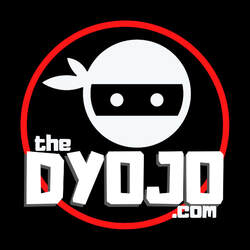
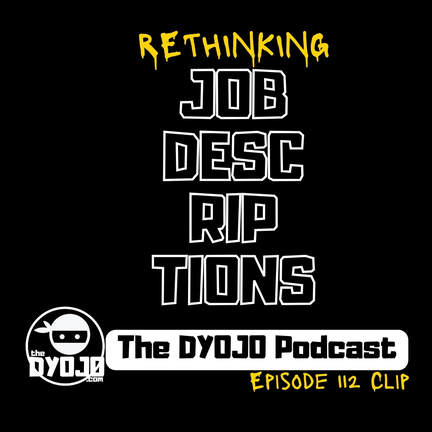


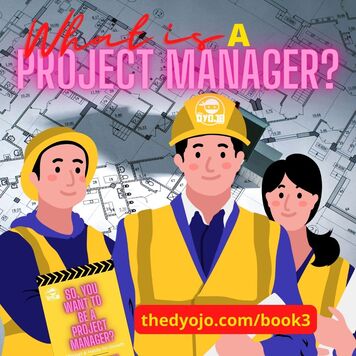
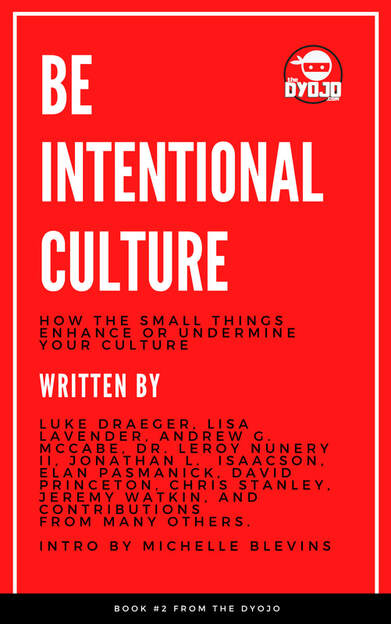


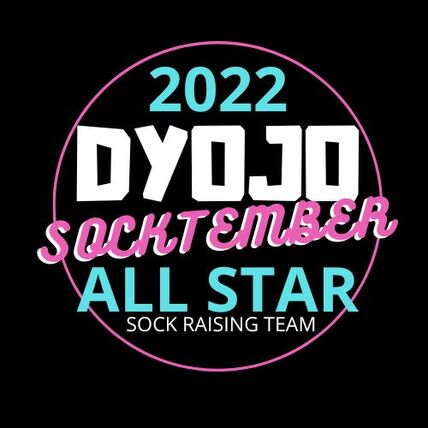
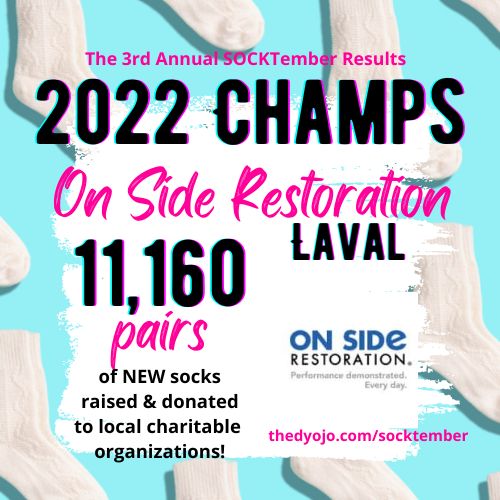
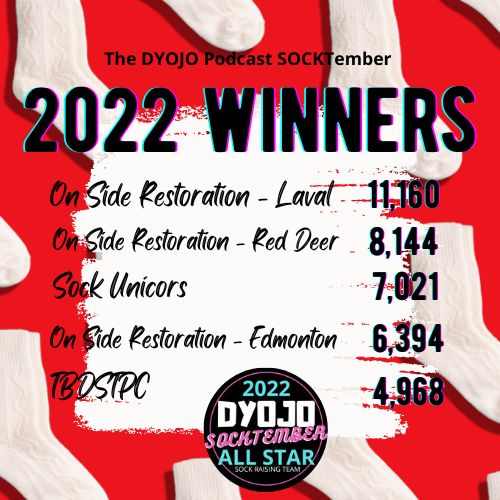
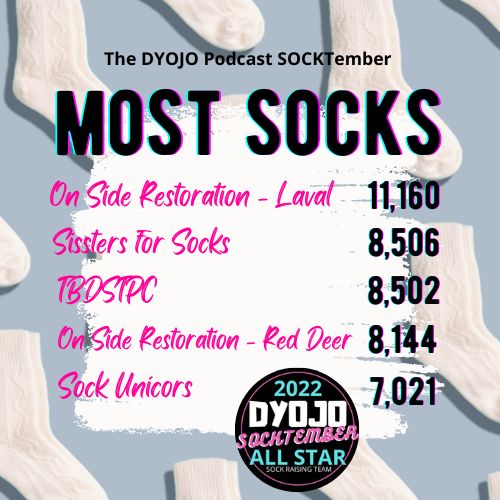
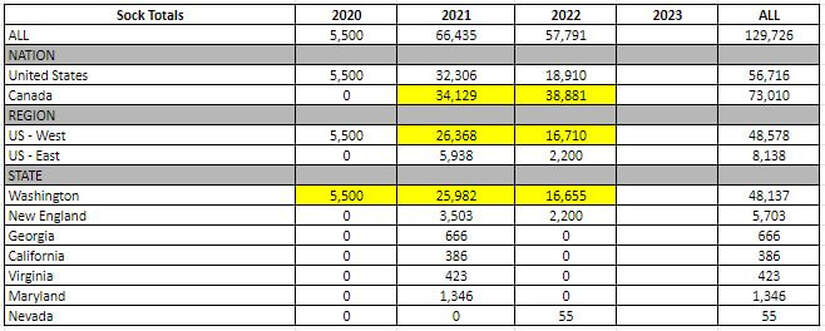
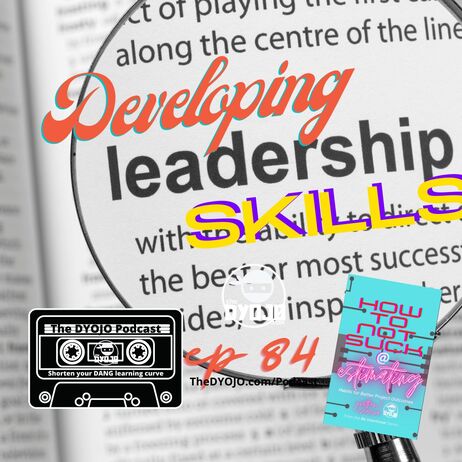
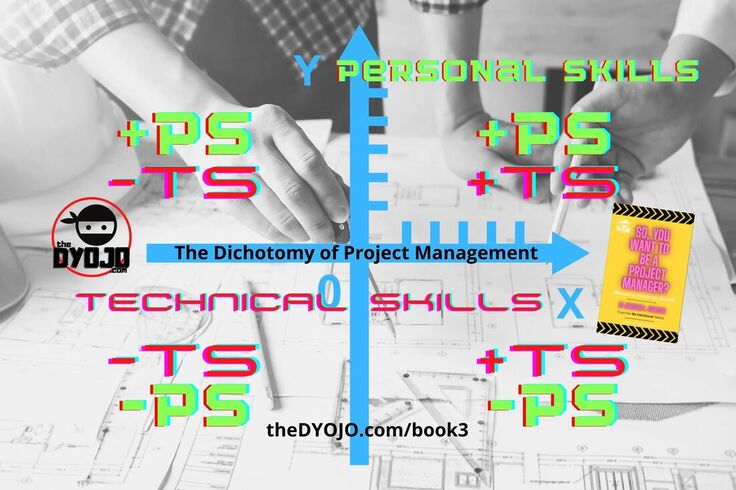

 RSS Feed
RSS Feed
